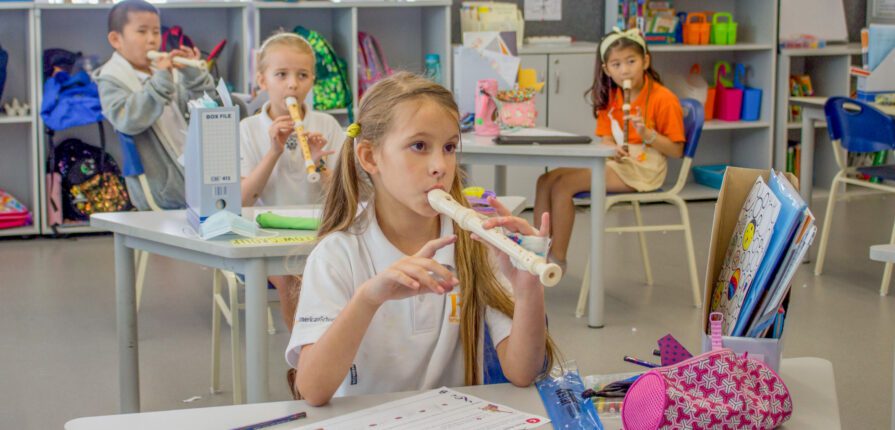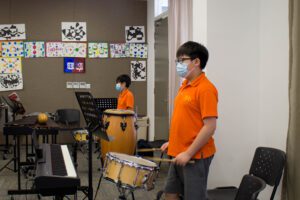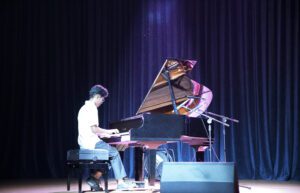Music and Academic Learning
In any international school in Malaysia, when music classes are offered, students enjoy learning an instrument or playing in a band with their peers. But how much thought is given to how these musical teachings will impact the rest of their student growth? Music does more than just entertain. It improves cognitive, social, and personal development, which enables students to score higher grades in subjects such as English, Math, and Science, according to a study by Guhn (2019). For that reason, at Raffles American School, we provide our students with the opportunity to engage in music courses, alongside sports and academic courses, in the interest of having a holistic education. The same study also demonstrates that students who play instruments in an ensemble increase their teamwork, listening, and communication skills due to their collaborative nature.
 Providing a Holistic Education
Providing a Holistic Education
The goal of holistic education is to provide students with a comprehensive understanding of all aspects of academia, sports, and performing arts in order for them to become multifaceted and well-rounded individuals after they graduate. Hare (2010) states that “Holistic education focuses on the fullest possible development of the person, encouraging individuals to become the very best or finest that they can be and enabling them to experience all they can from life and reach their goals.” Our goal for our students at Raffles American School is to ensure they have the opportunity to engage thoroughly in all aspects of education. This enables them to develop all the skills necessary in their future education and careers.
Music and Academic Achievement
The study by Guhn (2019) claims that taking part in music courses can directly correlate with a student’s high achievements in their academic grades. More specifically, researchers found that higher cognitive functioning associated with judgment, problem-solving, and planning, referred to as executive functioning, is shown to be modified in various parts of the brain when someone is trained in music since childhood. That is because trained musicians are able to quickly divert their attention from one musical note and still pay close attention to the rest of the ensemble.
Personal and Social Development
Being in an ensemble allows students to develop harmonious relationships and gives them a sense of belonging in their instrumental sections. Guhn (2019) highlights this by stating, “Students engaging in musical activities as part of a group may experience bonding and the sense of team accomplishment.” Furthermore, its cooperative nature is also shown to increase academic performance due to the positive collaborative environment.
 Motivation-Related Characteristics of Music
Motivation-Related Characteristics of Music
Training in an ensemble can be labor-intensive and may require many hours of extensive practice. For this reason, students who play instruments help promote their intrinsic motivation to want to become an expert in performing. In addition, Guhn (2019) asserts that putting an abundant number of hours in an effort to perform expertly fosters their “learning discipline, self-efficacy, and mastery-oriented learning experiences”.


 Providing a Holistic Education
Providing a Holistic Education Motivation-Related Characteristics of Music
Motivation-Related Characteristics of Music